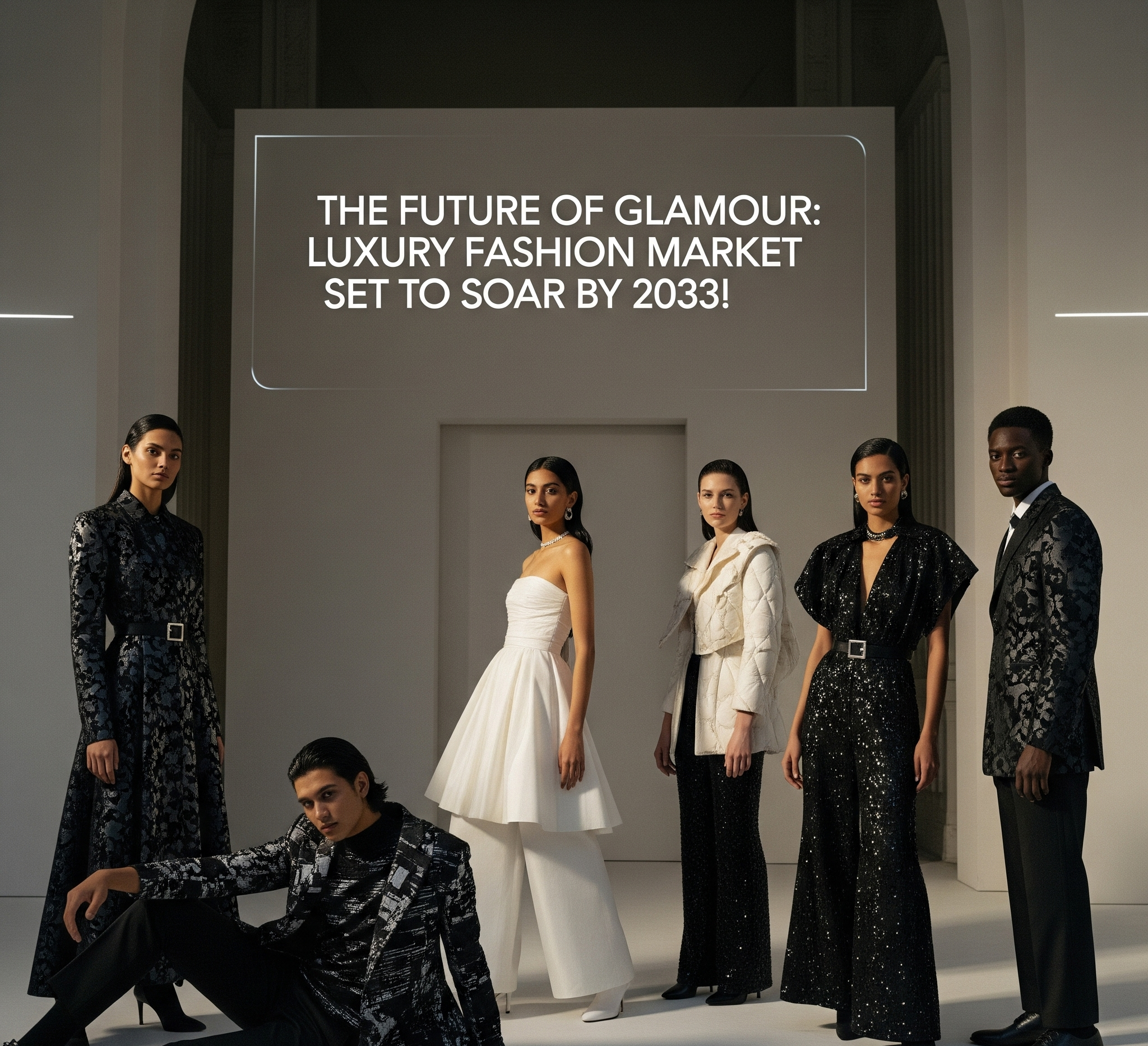The world of luxury fashion, synonymous with heritage, exclusivity, and unparalleled craftsmanship, is experiencing a vibrant resurgence and remarkable transformation. Far from being a niche market, it’s a powerful economic force poised for significant growth in the coming decade. New forecasts project a thriving future, driven by evolving consumer desires and groundbreaking technological shifts.
So, what’s behind this glittering outlook, and what key trends are shaping the luxury fashion landscape towards 2033? Let’s dive in!
The Numbers Speak Luxury: A Market on the Rise
The global luxury fashion market, valued at approximately USD 259.74 billion in 2024, is projected to reach an astounding USD 431.43 billion by 2033, growing at a robust Compound Annual Growth Rate (CAGR) of 5.8% during this period. This expansion isn’t just about more affluent consumers; it’s about a fundamental shift in values and purchasing behaviors across generations and geographies.
Key Drivers Fueling This Luxurious Growth:
- Millennials & Gen Z Take the Reins: These tech-savvy generations are increasingly embracing luxury, valuing experiences, authenticity, and digital engagement. They are highly exposed to omnichannel retail and seek luxury as a part of a broader lifestyle experience, driving significant demand.
- Rising Affluence in Emerging Markets: The burgeoning middle and high-net-worth populations in regions like Asia-Pacific (especially China and India) and the Middle East are becoming crucial drivers. Asia-Pacific is already the largest luxury fashion market shareholder and is set to continue its rapid growth.
- The Travel & Tourism Boom: A substantial portion (over 45%) of luxury purchases are made by tourists, whether abroad or at airports. The global increase in travel directly correlates with a surge in demand for luxury fashion goods.
- The Sustainable Shift: Consumers, particularly younger ones, are increasingly prioritizing sustainability and ethical production. This is pushing luxury brands to invest in eco-friendly materials, traceable supply chains, circular fashion initiatives (like buy-back and repair services), and transparent practices, which in turn attracts a new, values-driven customer base.
- Digitalization & Virtual Experiences: E-commerce, augmented reality (AR) for virtual try-ons, virtual showrooms, digital-only fashion items (NFTs), and AI-powered personalization are reimagining how luxury brands engage with customers. Blockchain authentication is also addressing concerns about authenticity, crucial in a market prone to counterfeits.
- Demand for Exclusivity & Personalization: Beyond mass-produced items, there’s a growing desire for unique, bespoke, limited-edition pieces and highly personalized experiences that allow consumers to express their individuality and create a personal narrative around their purchases.
- Social Media & Influencer Power: These platforms play a vital role in increasing brand visibility, shaping aspirational value, and influencing purchasing decisions among affluent consumers worldwide.
Navigating the Challenges: The Rise of Resale
While the outlook is bright, the luxury fashion market isn’t without its challenges. The increasing popularity of second-hand luxury products and the rise of re-commerce platforms pose a unique dynamic. While these platforms cater to growing consumer demand for more accessible luxury and sustainable options, they can also impact the sales of new, fresh stock. Brands are responding by integrating circular economy initiatives, seeing resale as an opportunity to foster longevity and engage new customer segments.
The Future is Bright, and Increasingly Conscious
The luxury fashion market is evolving into a more digitally integrated, sustainably conscious, and globally diverse powerhouse. Success in these future hinges on understanding the nuances of new consumer behaviors, embracing technological innovation, and prioritizing purpose alongside profit.
Shape the Future: Master Fashion, Apparel & Luxury Management
The complex interplay of global trends, consumer demands, and technological advancements underscores the need for visionary leaders in the luxury fashion sector. If you aspire to be at the forefront of this dynamic industry, driving innovation and shaping its next chapter, specialized expertise is essential.
The MSc in Fashion, Apparel and Luxury Management at NEXT Campus is designed to provide you with the strategic foresight, analytical acumen, and practical skills necessary to navigate these intricate market dynamics. Equip yourself to lead sustainable growth, leverage digital transformation, and capture the evolving opportunities within the global luxury fashion landscape. Read more: MSc Fashion, Apparel and Luxury Management – NEXT Campus
For a deeper dive into the detailed forecasts and trends shaping the luxury fashion market, explore the full report: Luxury Fashion Market Size, Trends and Demand by Forecast 2033 – Straits Research



